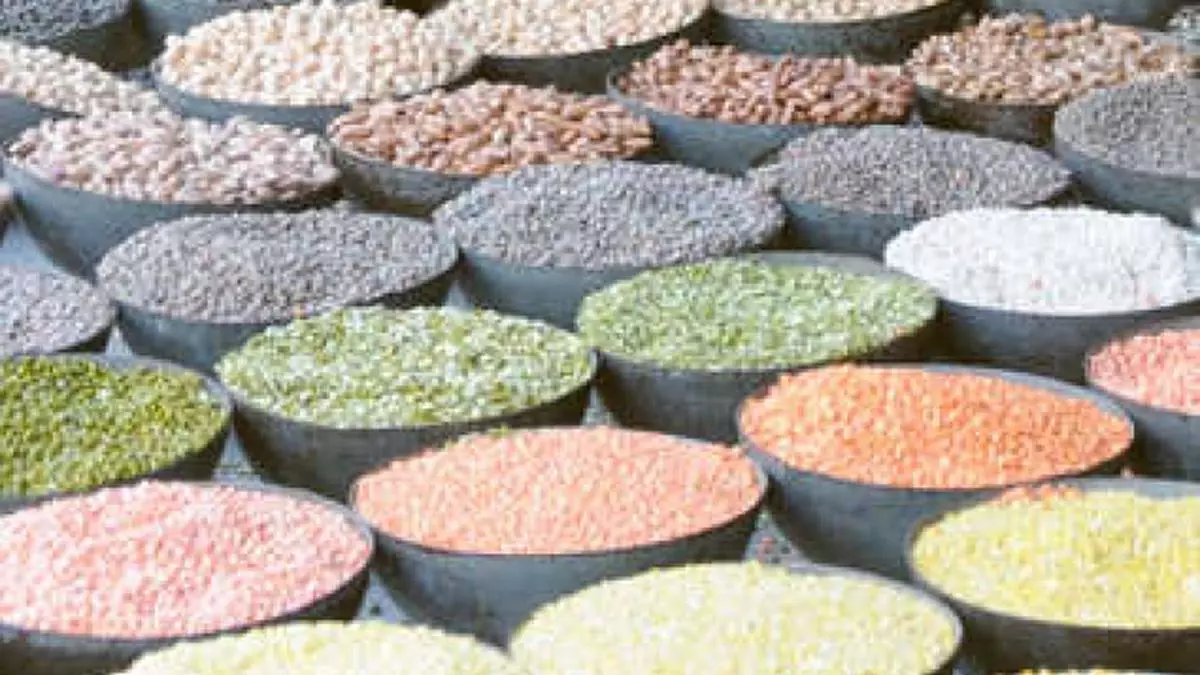Bharat dal sales resume; chana and masur dal offered at reduced prices
The Centre on Wednesday resumed sales of pulses under the ‘Bharat’ brand to ease check the financial burden on consumers, particularly those who spend a major part of their income on food. The resumption of Bharat Dal sales is also seen to enhance the supplies to consumers in the current festive season, ahead of Diwali.
Food and Consumer Affairs Minister Pralhad Joshi, who launched Phase II of the initiative, said chana (whole) will be sold at ₹58 per kg and masur dal at ₹89 per kg through the cooperative networks of NCCF, NAFED and Kendriya Bhandar.
Bharat dal Phase II
In Phase II, about 3 lakh tonnes (lt) of chana (gram crop) from the buffer stock will be converted to chana dal and chana (whole) for retail sale to consumers at ₹70 per kg and ₹58 per kg, respectively, an official statement said. During Phase I, chana dal was sold at ₹60/kg.
The Bharat brand moong dal has been priced the same at ₹107 per kg, while the government has added masur dal to the list, fixing its MRP at ₹89 per kg.
The all-India average retail price of chana dal was about ₹95/kg, that of moong dal was ₹116/kg, and masur dal was ₹90/kg as per official data on October 22. The retail price of tur dal was ₹162/kg, and that of urad dal was ₹125/kg, which is not covered under the Bharat Dal programme.
Joshi said the initiative affirms the government’s commitment to ensuring the availability of essential food to the consumers at affordable prices. “Direct interventions through retail sale of basic food items such as rice, atta, dals, and onion have also helped in maintaining a stable price regime,” he said.
The government has also been in talks with e-commerce platforms and big retail outlets to increase the accessibility of Bharat dal.
Price stabilisation fund
“We are offloading the pulses at subsidised rates from the buffer stock, created under the Price Stabilisation Fund scheme,” Joshi told media after flagging off mobile vans carrying the pulses to be sold in different parts of Delhi. He hoped that pulses output this year will be ‘good’ as the government hiked the support prices substantially.
According to Anice Chandra Joseph, Managing Director of NCCF, the distribution, which started initially in Delhi, will also commence in Rajasthan, Gujarat, and Maharashtra soon, and the entire country will be covered in the next ten days.
In October last year, the government started Phase I of the sales of essential commodities such as atta, rice, and dal under the Bharat brand which was discontinued in June.
The government is also maintaining price interventions for onion at ₹35/kg and tomato at ₹65/kg, selling directly to consumers through cooperatives and other agencies.
On the sidelines, the minister also discussed a grain evacuation plan from Punjab. Due to overflowing stock, paddy procurement has been hampered in in the State, creating unrest among farmers.
“The highest priority has been given to Punjab and Haryana for evacuation of the stock,” Joshi said on the concerns over delays in procurement. He stressed that a detailed space-creation strategy has been shared with the state government.
“We have given a detailed plan to the Punjab government on creation of space. Highest number of rakes have been provided,” he said, adding the Centre is committed to buying targetted 185 lt of paddy (or 124 lt in terms of rice) from Punjab during the current marketing season that began October 1.
